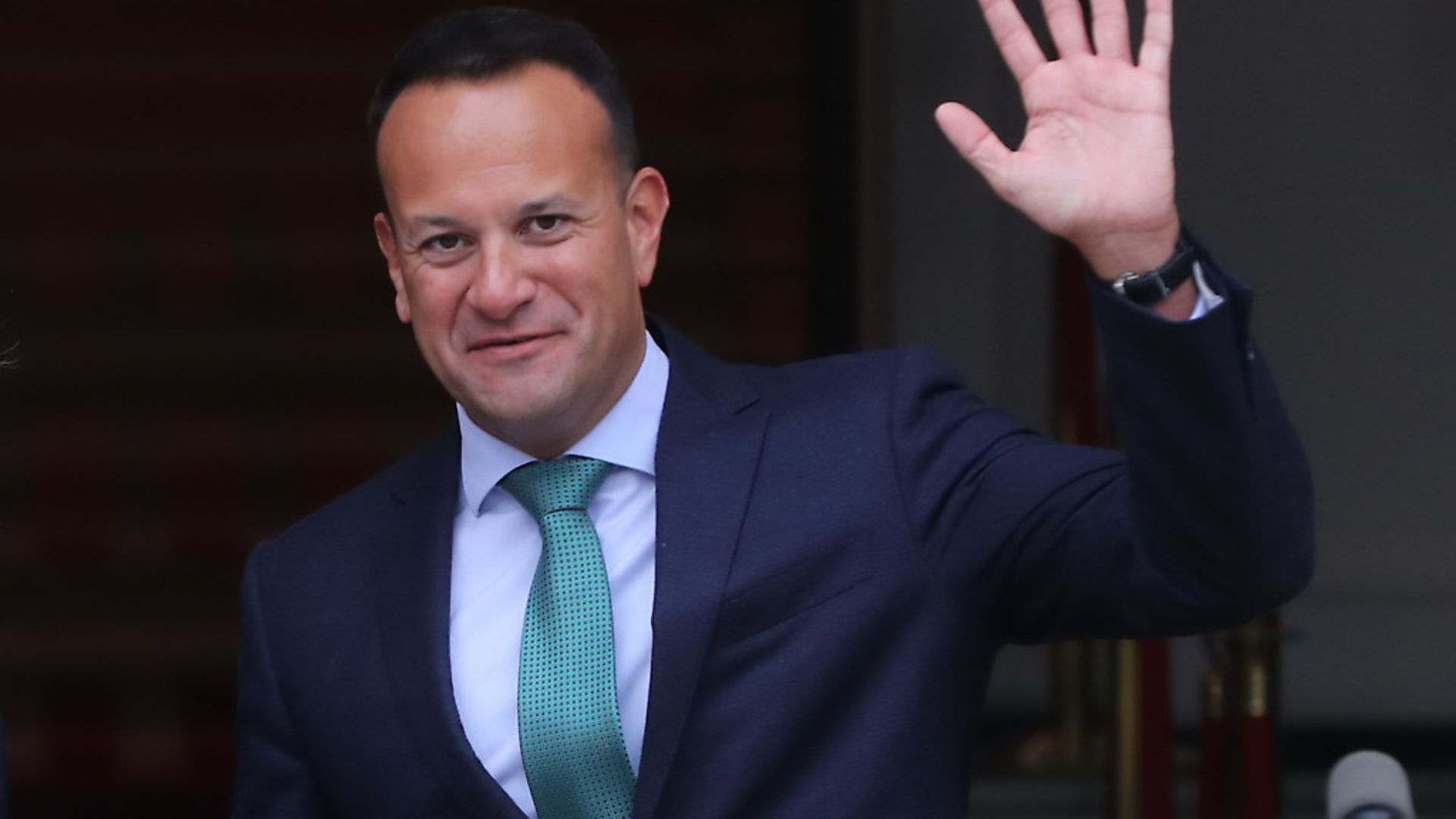
ANDREW ADONIS on why the Irish Taoiseach will make the most from the Brexit crisis.
The two victors of the Brexit crisis in these islands have been Boris Johnson and Leo Varadkar. And the Taoiseach’s triumph may be to be the more significant as he steers Ireland towards a unity and confidence it has never previously known – not since the records begin of religious and political wars by British rulers long before Henry VIII.
The two transformational Irish developments of the last generation – the peace process in the north and the secularisation of the south – are coming together in a new politics which makes old divisions looks prehistoric. Brexit has accelerated this and could result in a single Irish state fairly soon.
This week, power-sharing relaunched in the north as the DUP’s narrow-minded support for hard Brexit led to its humiliation at the general election and a surge for the two moderate SDLP and Alliance parties.
This was on the back of Varadkar’s deal with Johnson. It is important to understand the full significance of this deal, which made Brexit possible. It effectively keeps Northern Ireland in the EU, in a political partnership with the Republic of Ireland which is halfway or more towards a united Ireland.
Varadkar has just called an election in the south which is likely to consolidate his position and enable him to take on the mantle of leader of all Ireland, north and south. Just think about it. In a fortnight there will be no British ministers in Brussels, yet under the Brexit deal almost every decision by the EU will have the force of law in Northern Ireland. So who will the region look to for leadership? Varadkar.
Consider the person of Leo Varadkar and be amazed. The gay, secular son of an Indian doctor immigrant to Ireland via England, where he married a nurse from Donegal via Slough. The family moved back to India before settling in Dublin in 1973, just six years before Leo was born.
The entire previous history of Catholic Ireland, personified by Eamon de Valera – who was nearly executed by the British after the Easter Rising of 1916 and did not die until 1975, two years after retiring as president – is a closed book to the 40-year-old son of Ashok Varadkar. Nothing symbolises this more than the huge majority for equal marriage in the 2015 referendum, followed soon after by Leo’s ascent as Taoiseach.
I was in Dublin last year when the Pope visited. The previous papal visit, by John Paul II in 1979, the year of Leo’s birth, saw a third of the entire population of Ireland celebrate mass with him in Phoenix Park. When Francis presided over mass in the same place, barely a tenth as many attended. The main event of the papal visit was Varadkar’s speech of welcome at Dublin Castle which deplored the clerical child abuse scandals that have rocked Ireland. In effect he declared the country to be post-Catholic. It was utterly masterly, defining a new Ireland.
The secularisation and modernisation of the south is as big a change as the introduction of power-sharing between the unionist and nationalist leaders of the north, whose partisans spawned decades of bloody terrorism.
In the entire history of Britain’s deplorable relations with Ireland, only two British leaders, Tony Blair and John Major, have brought about a lasting rapprochement. The change they made, culminating in the Good Friday Agreement of 1998, was so fundamental, it may have overcome the malign legacy of all their predecessors put together.
Here again, the last few months have been decisive. The reverend Ian Paisley’s DUP, hard extreme of an embattled Ulster unionism going back to Sir Edward Carson who enforced partition in 1922 as the south became independent, opposed the Good Friday Agreement.
Although Paisley reluctantly took part in power-sharing, because it had overwhelming popular support from a people weary of bloodshed, his successors seized on Brexit as a chance to reimpose a hard border with the south and reignite a culture war to stem the tide of Varadkar-ism.
Nigel Dodds, leader of the DUP at Westminster until last month, was the hard man behind this strategy, which had full sway after Theresa May lost her majority in the 2017 election and thereafter governed by virtue of DUP votes.
The Johnson-Varadkar deal cut right across Dodds. Johnson betrayed him as the only possible strategy to get a Brexit deal which would stick in Dublin, Brussels and London.
I have no difficulty contemplating a United Ireland if it can be accomplished peacefully by consent. It is just as logical and desirable as German unification in 1990. It could relaunch Ireland, north and south, as a phenomenal European cultural, economic and political powerhouse.
It may even happen soon. After all, only 11 months separated the fall of the Berlin Wall and German reunification.
Warning: Illegal string offset 'link_id' in /mnt/storage/stage/www/wp-includes/bookmark.php on line 357
Notice: Trying to get property 'link_id' of non-object in /mnt/storage/stage/www/wp-includes/bookmark.php on line 37






